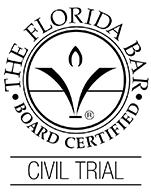Florida law requires most employers to provide workers’ compensation to cover employees who get hurt on the job, regardless of who is at fault. Workers’ compensation covers virtually all types of injuries, including lacerations, sprains, repetitive movement injuries, organ damage, traumatic brain injury (TBI), and more.
A Lakeland workers’ compensation lawyer from Dismuke Law can evaluate your case to determine if your injuries qualify for coverage and how much compensation you should receive.
What Is Workers’ Compensation?
Workers’ compensation is insurance an employer purchases to cover expenses for injured workers. Most employers with four or more employees must carry workers’ compensation insurance, according to the Florida Department of Financial Services. Additionally, construction companies with at least one employee must offer coverage.
When an employee gets hurt and files a compensation claim, the insurance provider investigates the injury and the circumstances surrounding it to decide whether to approve or deny it. If the insurance provider approves a claim, the employee should begin receiving payments within 21 days.
What Injuries Does Workers’ Compensation Cover?
Workers’ compensation typically covers any injury an employee can sustain while performing their job tasks. However, the circumstances of an injury may disqualify some people from workers’ comp coverage.
For example, if an injury results from drug or alcohol intoxication or because an employee was reckless, ignored company policy, or suffered a self-inflicted injury, they may not be eligible for workers’ compensation coverage. Pre-existing conditions may also not be covered.
Types of injuries that workers’ compensation covers include:
- Traumatic brain injuries
- Spinal cord injuries
- Neck injuries
- Internal injuries
- Lacerations
- Sprains
- Contusions
- Severe burns
- Hearing loss
- Vision loss
- Carpal tunnel syndrome
- Back injuries
- Stroke
- Heart attack
- Cancer
- Broken bones
- Respiratory problems
- Amputations
- Psychological problems
Many of these workers’ comp injuries will take time to recover from, and some injured workers may never fully recover. But workers’ compensation should cover medical expenses and lost income.
What Are Common Causes of Workplace Injuries?
Many jobs carry risks of injury. Depending on the severity of your work injury, you could be temporarily or permanently unable to do your job. Among the possible causes of workplace injury include:
- Falling objects: A falling object can inflict damage, especially to the head and neck.
- Repetitive movements: If you repeat the same movement repeatedly to do your job, you could overwork those parts of your body and suffer injury.
- Heavy machinery: Clothing and body parts can get caught in or between heavy machinery.
- Slips, trips, and falls: You could slip on a wet floor or trip over an object and fall. According to the Centers for Disease Control and Prevention (CDC), about 20% of falls result in serious injuries, such as broken bones or a head injury.
- Exposure to toxic substances: Your job may require you to handle toxic chemicals or substances that cause cancer, burns, or other ailments or injuries when inhaled or handled repeatedly.
- Workplace violence: Violent acts, such as a fight or physical attack, in the workplace can cause injuries.
- Vehicular accidents: One of the most common causes of injury in the workplace is accidents involving cars, trucks, forklifts, and other vehicles.
What Expenses Does Workers’ Compensation Cover?
If you get hurt at work, you’ll likely require medical treatment, which can be costly and is the top cause of bankruptcy in the United States, according to Forbes. Because of your injury, you may be unable to earn income, which only compounds your financial problems.
The damages workers’ compensation typically covers include:
- Medical expenses: Workers’ comp typically covers the cost of surgery, medical equipment and devices, hospitalization, transportation, medication, and modifications to your home to help you adapt to your injuries.
- Wage replacement: According to the Florida Department of Financial Services, you should receive a check covering 66.67% of your average weekly wages on a bi-weekly basis.
- Vocational training: If your workplace injury prevents you from returning to your previous job, workers’ compensation should cover any training you need to perform a new job.
While workers’ compensation covers your expenses and lost income, the trade-off is that your employer is immune to personal injury lawsuits, which means you can’t sue your employer or workplace for your injury. However, there are some rare exceptions to this rule, so you can ask your workers’ comp lawyer if you may qualify to file a lawsuit.
How Can a Lawyer Benefit Your Workers’ Compensation Case?
You may be unable to file a personal injury lawsuit against your employer, but a workers’ compensation attorney may still be able to help you recover workers’ comp benefits. A personal injury lawyer can help you file your claim, so you can avoid mistakes that could result in a denial. If the insurance company denies your claim, you have the right to appeal the decision.
You can request a workers’ compensation hearing where the insurance company and its lawyers will argue that the denial should stand while your lawyer will represent you by presenting your case and showing why you deserve compensation.
If you hire our law firm, we will help with your case from beginning to end. We will help you collect evidence, witness statements, and expert opinions to build your case, calculate your claim’s value, and negotiate for a fair settlement on your behalf. We will also protect your rights against the insurer and their lawyers so nobody tries to take advantage of you.
What Should You Do After an On-the-Job Injury?
Taking the following steps may help you achieve a positive outcome for your workers’ compensation case:
- Seek immediate medical treatment: You should receive medical treatment as soon as possible, so your doctor can document your injuries and begin treatment.
- Report the injury: Per Florida Statutes § 440.185, you must inform your employer about your injury within 30 days.
- File a Claim: Fill out a claim form (which your lawyer can help you do) and return it to your employer, who should turn it over to their workers’ compensation insurance provider.
- Consult an attorney: We recommend consulting with a personal injury attorney. Your lawyer can help you file a claim and represent you during workers’ compensation hearings.
Learn More About Workers’ Compensation Benefits Today
You work hard. It’s only fair that workers’ compensation takes care of you when you suffer a work-related injury. A workers’ compensation lawyer from Dismuke Law is ready to answer your questions and handle your case in Central Florida. We can help you, so you can focus on healing.
To learn more about workers’ compensation law or schedule a free consultation, please contact us. Ask Dave about your case in Central Florida today.


![cftla-member[2]](https://www.1800askdave.com/wp-content/uploads/2022/03/cftla-member2.png)
![cftla-member[3]](https://www.1800askdave.com/wp-content/uploads/2022/03/cftla-member3.png)










